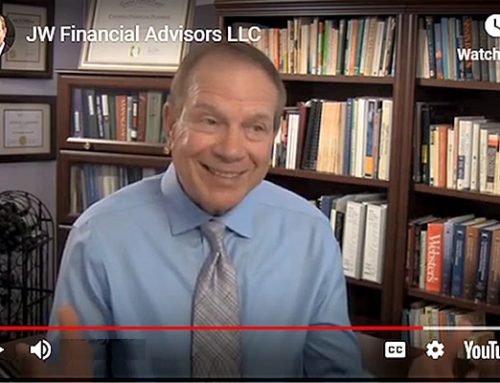 A 401(k) plan represents one of the most powerful retirement savings opportunities available today. If your employer offers a 401(k) plan, and you’re not participating in it, you are not taking advantage of one of the most efficient investments that can be used for retirement.
A 401(k) plan represents one of the most powerful retirement savings opportunities available today. If your employer offers a 401(k) plan, and you’re not participating in it, you are not taking advantage of one of the most efficient investments that can be used for retirement.
Contribute As Much As Possible
The more you can save for retirement, the better your chances of enjoying a comfortable, stress-free retirement. If you can, max out your contributions up to the legal limit ($17,500 this year, and $23,000 if you’re 50 or older). If you need to free up money to do that, try to cut certain unnecessary expenses.
Why invest retirement dollars in a 401(k) plan instead of somewhere else? One reason is that your pretax contributions will lower your taxable income for the year. This means that you save money in taxes immediately when you contribute to the plan—a big advantage if you’re in a high tax bracket. For example, if you earn $100,000 a year and contribute $17,500 to a 401(k) plan, you’ll pay federal and state income taxes on $82,500 instead of $100,000.
Another reason is the power of tax-deferred growth. Any investment earnings are compound year after year, and aren’t taxable when they remain in the plan. Over the long term, you can build a substantial sum for your retirement. Your contributions and earnings will not be taxed until you take them out of the plan, when you retire.
Consider Roth Contributions
Your 401(k) plan may also allow you to make after-tax Roth contributions. Unlike pre-tax contributions, Roth contributions don’t lower your current taxable income, so there’s no immediate tax savings. But, because you’ve already paid taxes on those contributions, they’re free from federal and state income taxes when you withdraw them from the plan. And if your withdrawal takes place after you satisfy a five-year holding period, and you are at least 59 ½, all of the earnings are tax free. If you aren’t sure about whether the Roth approach is appropriate for you, it might be time to speak with a financial advisor.
Capture the Full Employer Match
Many employers will match all or part of your contributions. If you can’t max out your 401(d) contributions, you should at least try to contribute as much as necessary to get the full employer match. Employer matching contributions are basically free money. By capturing the full benefit of your employer’s match, you’ll be surprised at how much faster your balance grows. If you don’t take advantage of your employer’s generosity, you could be passing up a significant contribution towards your retirement.
Save Before you Spend
One of the most important features of a 401(k) plan has nothing to do with the numbers, but with behavior. It is essentially a “forced savings” program. When money is taken from your paycheck before you receive it, you can’t spend it. You won’t miss it, and you will be pleasantly surprised to see how your investments have grown when you receive your annual statement.
Access Funds If You Must
Another beneficial feature that many 401(d) plans offer is the ability to borrow against your vested balance at a reasonable interest rate. You can use a plan loan to pay off high-interest debts or to meet other large expenses, like the purchase of a car. You typically won’t be taxed or penalized on amounts you borrow, as long as the loan is repaid within five years. Immediate repayment may be required however, if you leave your employer—if you can’t repay the loan, you may be treated as having taken a taxable distribution from the plan. You may also be subject to a 10% penalty.
Evaluate Your Investment Choices
Choose your investments carefully. The right investment mix could be one of your keys to a comfortable retirement. That’s because, over the long term, varying rates of return, depending on your choices, can make a big difference in the size of your retirement account.
If you have any doubts about your ability to put together a well-diversified portfolio that matches your risk level, it might be time to consult with a North Bay Financial Planner. One of the most important jobs of a CERTIFIED FINANCIAL PLANNER™ is to help you make the correct decisions, so that you can achieve your long-term investment goals.







Leave A Comment
You must be logged in to post a comment.